shadow work
2012-2016
オーガンジー・刺繍糸
organdy, embroidery thread
洗面台にある真新しい石けんやクッションカバーに施された刺繍、花瓶にいけられた花。
それら、家という場所に当たり前のように配置されているものも、誰かのーその多くが主婦による、労働の痕跡です。
主婦は近代的な女性像として誕生しましたが、同時に、家庭を機能させ演出するというその仕事は、金銭の支払いの対象にならない労働として社会的にも経済的にも周縁化されてゆきます。
この作品は、1930年代に建てられた個人邸宅におけるインスタレーションワークとして制作しました。
政治は家庭の中にどう反映され、そして私たちはそれらをどのように見ているのでしょうか。
A new bar of soap on a washstand, embroidery on cushions, and flowers in a vase.
Such common objects that are placed around our house are also marks of others’ labor, and, in most cases, the laborers are housewives.
Housewifery came into being and soon was recommended as a modern way of life for women. However, at the same time, housewives’ domestic work, being unpaid, started being given less importance socially and economically.
This is a sight-specific installation in a residence built in the 1930s in a Japanese–Western hybrid style.
What kind of reflection does politics have on each house? And how can we understand these reflections?
主婦は近代的な女性像として誕生しましたが、同時に、家庭を機能させ演出するというその仕事は、金銭の支払いの対象にならない労働として社会的にも経済的にも周縁化されてゆきます。
この作品は、1930年代に建てられた個人邸宅におけるインスタレーションワークとして制作しました。
政治は家庭の中にどう反映され、そして私たちはそれらをどのように見ているのでしょうか。
A new bar of soap on a washstand, embroidery on cushions, and flowers in a vase.
Such common objects that are placed around our house are also marks of others’ labor, and, in most cases, the laborers are housewives.
Housewifery came into being and soon was recommended as a modern way of life for women. However, at the same time, housewives’ domestic work, being unpaid, started being given less importance socially and economically.
This is a sight-specific installation in a residence built in the 1930s in a Japanese–Western hybrid style.
What kind of reflection does politics have on each house? And how can we understand these reflections?
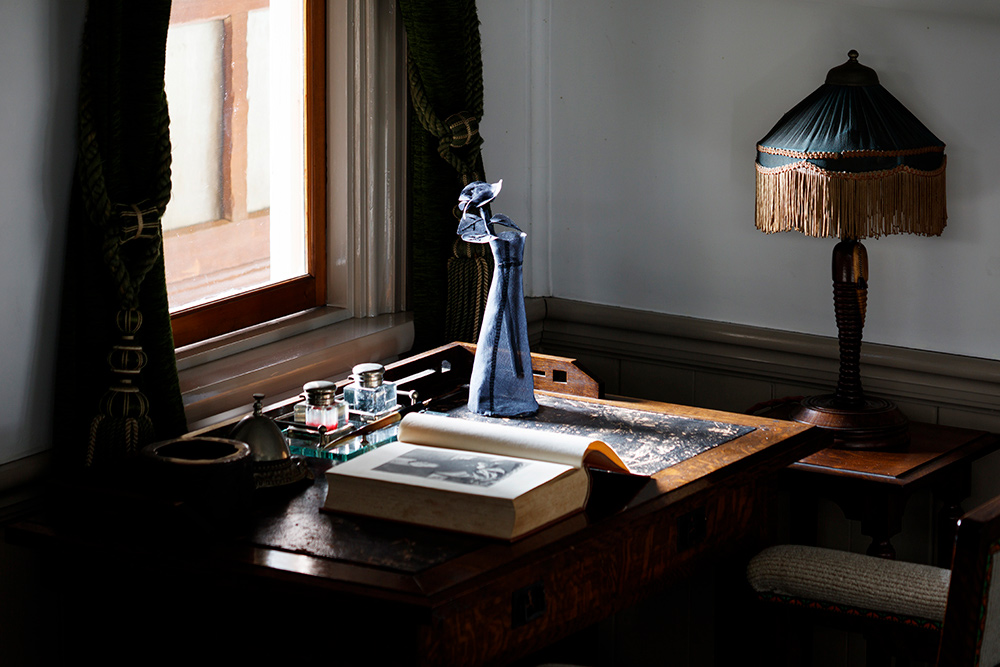
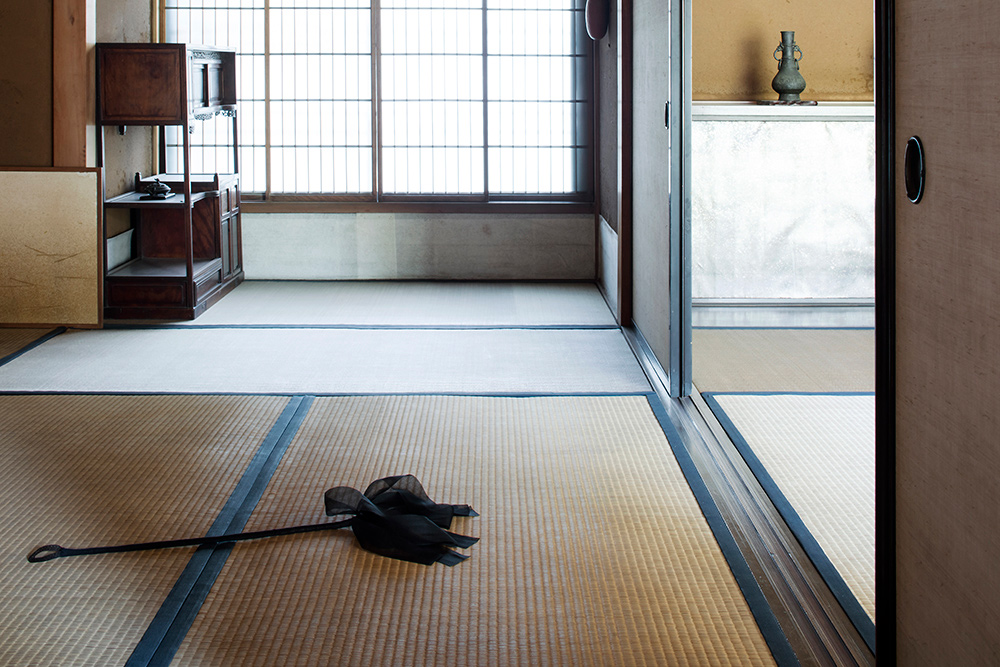
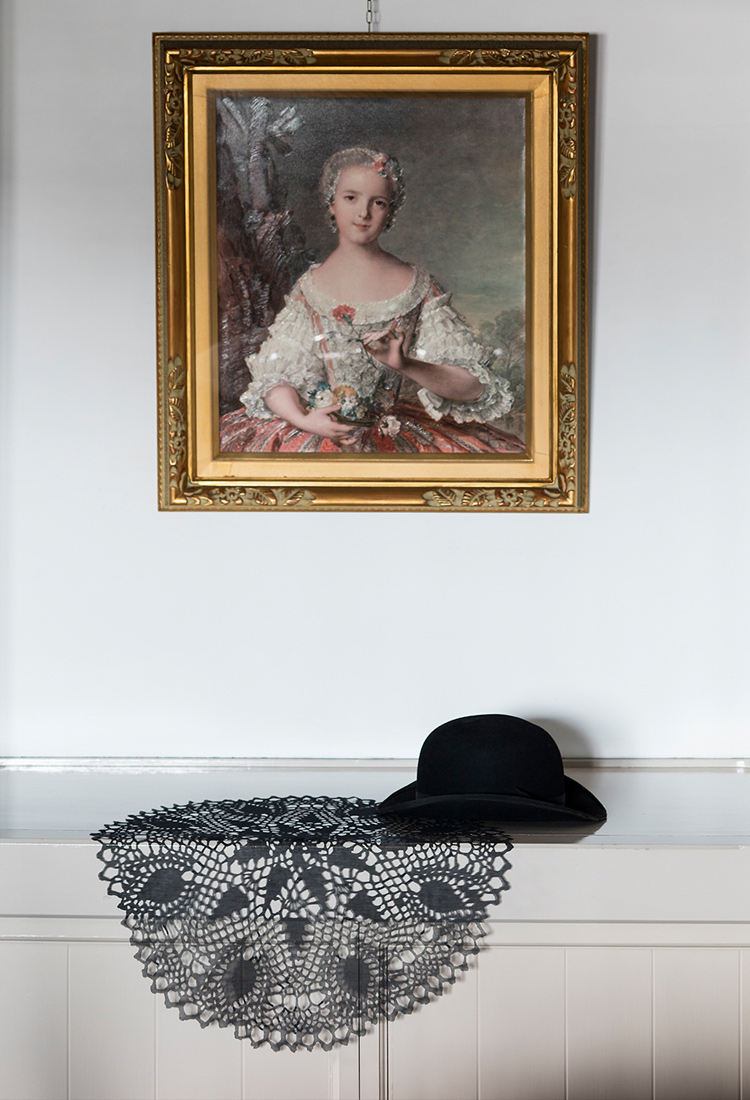
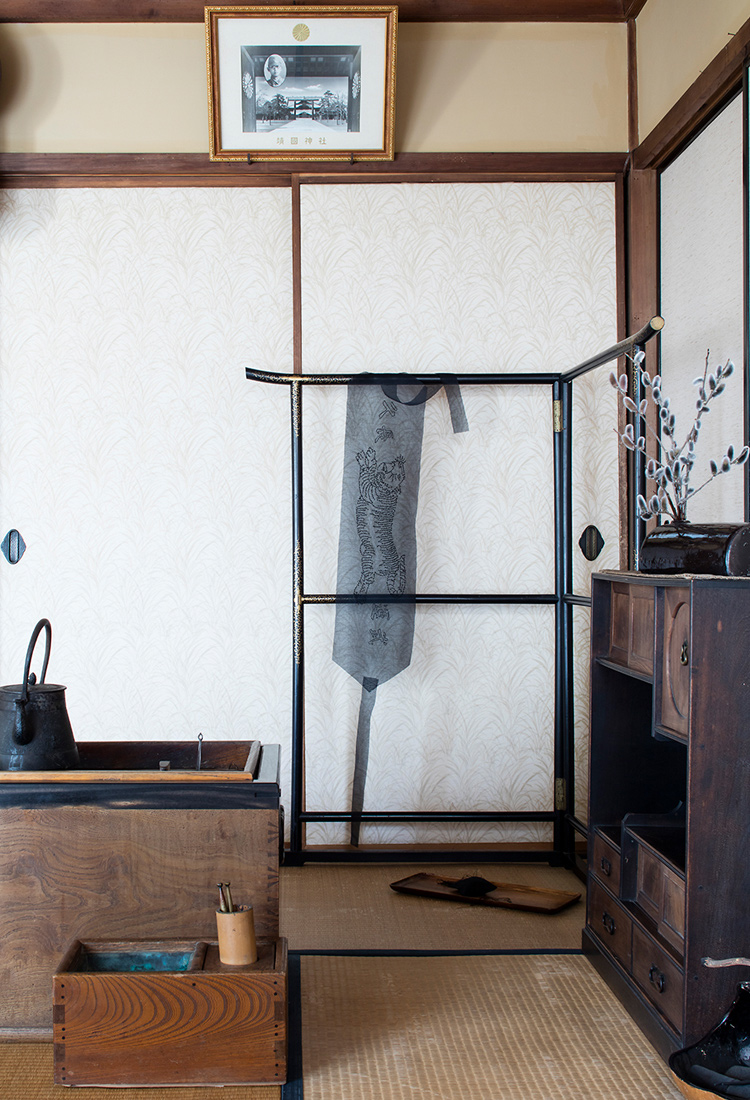
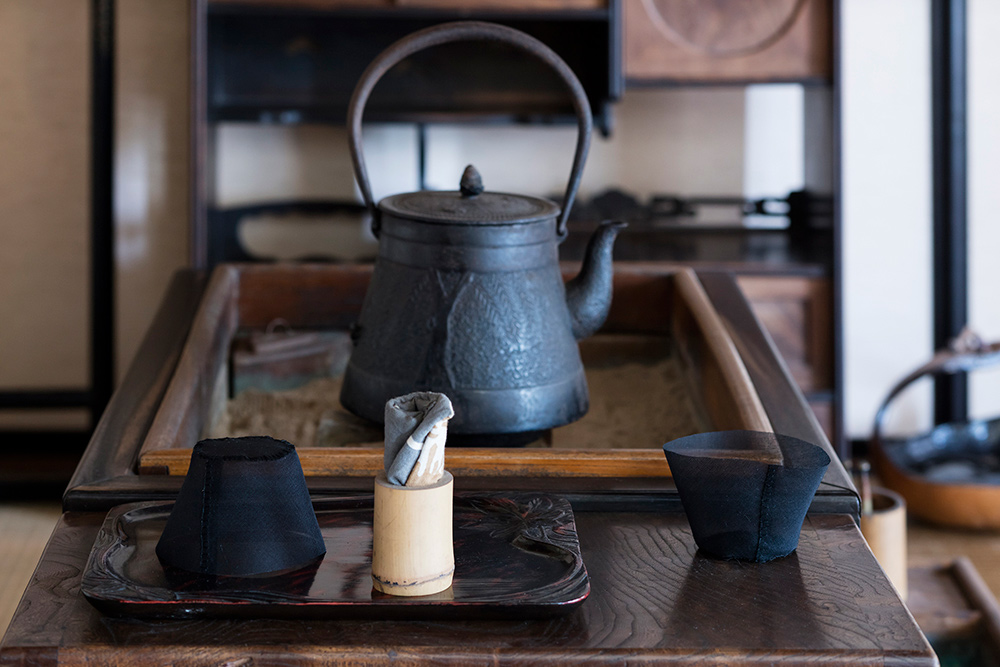
photo: Shinya Kigure
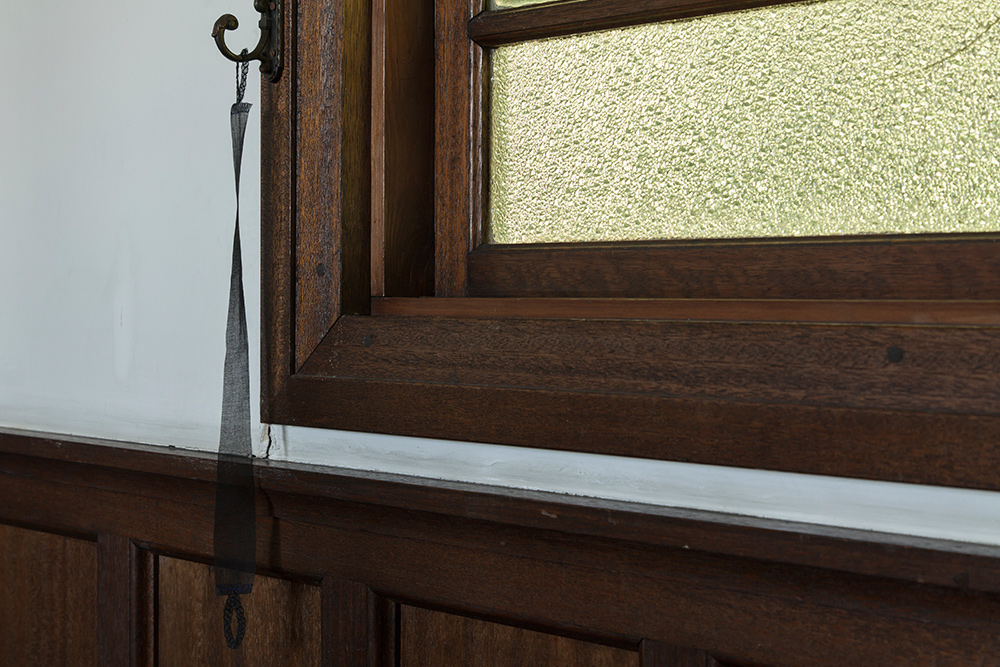
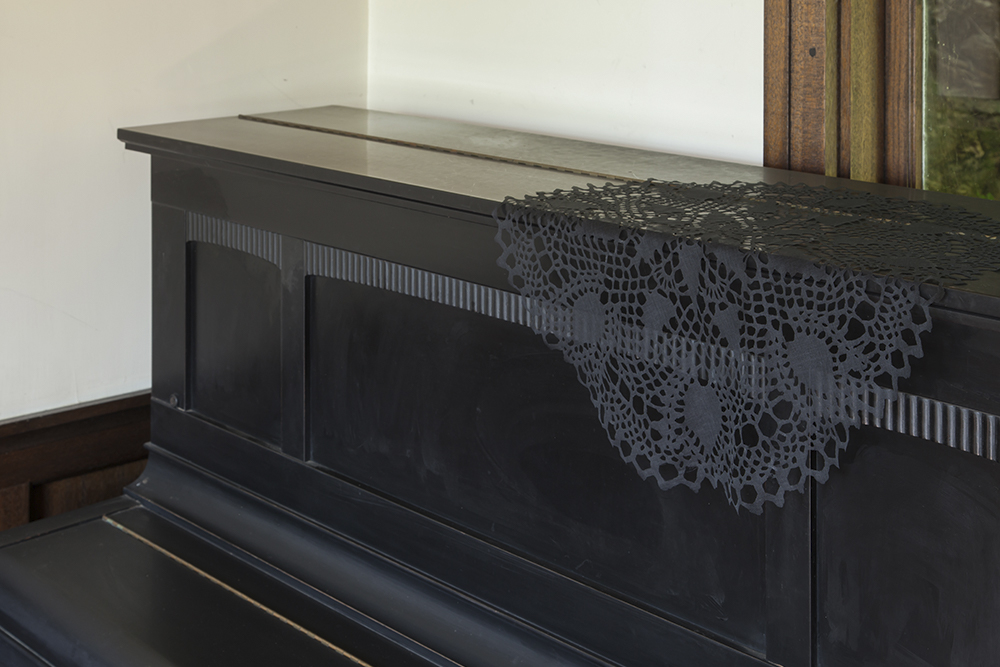
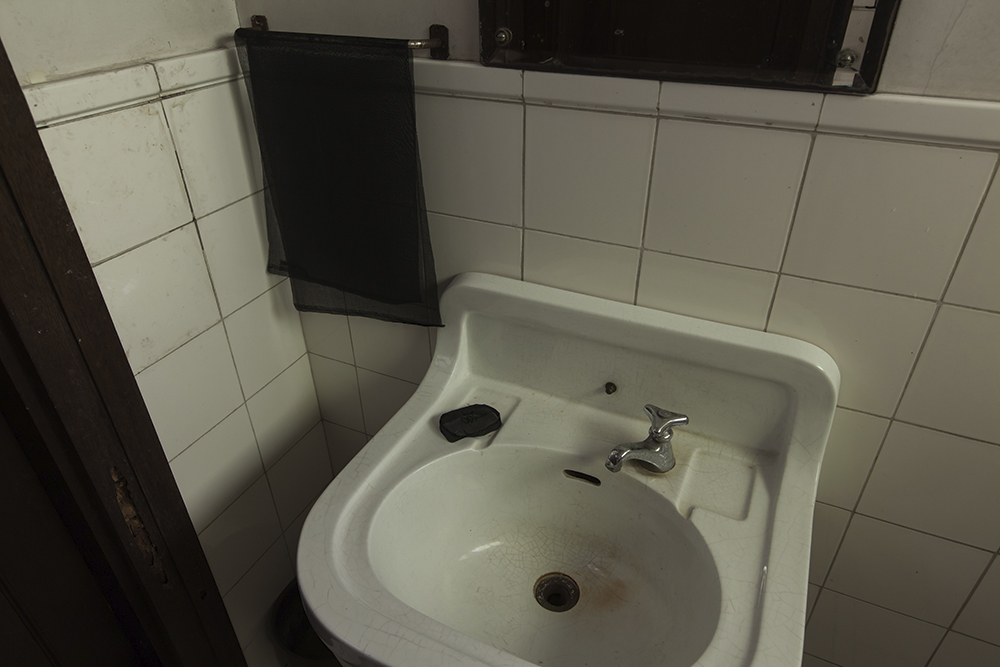
photo: Yohei Sasakura
© 2009 Yui Usui